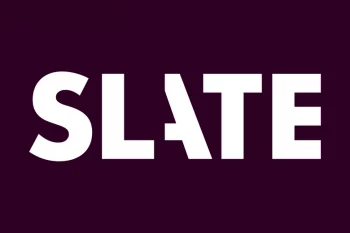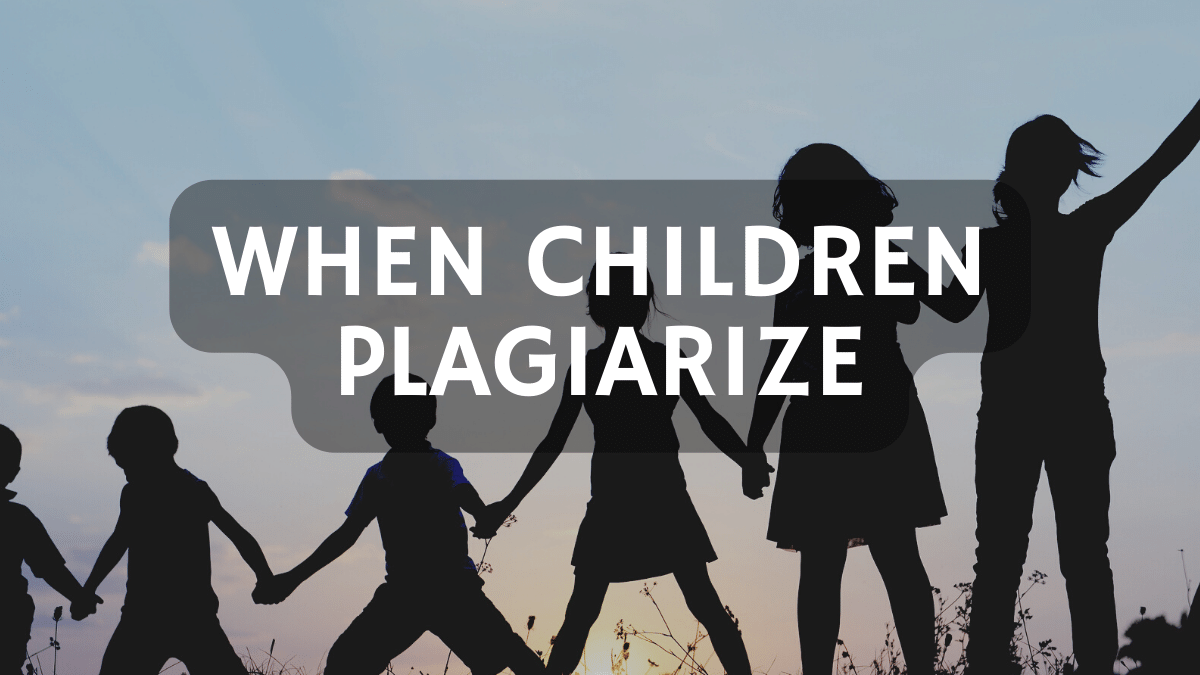When Children Plagiarize

Last week, Jamila Lemieux at Slate published an edition of her Care and Feeding advice column with an unusual question involving a young author who committed plagiarism.
According to the column, the woman, going by the pseudonym Mom of the Poetry Police, was unsure how to move forward with her daughter. The daughter, reading a magazine that publishes poetry from young authors, recognized one of the poems in it from another book.
The daughter was wishing to contact editors of the publication to let them know about the plagiarism. However, the mother was having difficulty with that, not wanting to play a role in ruining the writing career of a supposed 10-year-old girl that lived many states away.
However, on the flip side, she didn’t want to give her daughter the impression that plagiarism should be shrugged off and was struggling to find a balance between these things.
Lemieux, in responding to the letter, told the mom that she didn’t feel it was worth contacting the magazine with the information nor was it worth trying to track down the girl directly.
Instead, she encouraged the mom to try and help her child have empathy with the suspected plagiarist, noting she may come from a very different background or have other issues at home that could open her up to much more severe punishment.
While I don’t necessarily agree with that advice, for reasons I’ll get into in a bit, I do agree that empathy is an important tool when dealing with plagiarism cases, especially those involving children.
However, finding the balance between taking plagiarism seriously and understanding that kids make mistakes is a difficult one, both inside and outside of the classroom.
Why Children Plagiarize
Studies have shown us that children understand the morality of plagiarism as young as ages 5 or 6. Though that is something that has to evolve within young minds, usually most understand that plagiarism is wrong before they enter the first grade.
Because of that, children often plagiarize for the same reasons adults. They may not understand the citation standards, they may not value the assignment, poor time management or simply struggling with the subject are all possible reasons.
However, what makes it different for children is that plagiarism can often have very long-lasting consequences for the plagiarist. In an academic setting, it can derail one’s whole career if it’s serious enough. Outside of academia, it can result in shaming or being blackballed from whatever field it was in.
Plagiarism is often called “The Career Death Penalty,” even though that is demonstrably untrue. But even if it isn’t an automatic career ending moment, it still carries long-term consequences and, in general, we believe children should be as free from such consequences as possible.
Simply put, children are supposed to make mistakes, sometimes bad ones, and be able to move on from them. But, as this mother is rightly worried, a public thrashing of this child for plagiarism would deny her that chance.
While it’s impossible to know why this girl chose to plagiarize in a literary magazine that was not required for her school, it’s not unreasonable to think that there might be other pressures pushing her in this direction. These include ones mentioned by Lemieux, such as issues at home, mental health problems and so forth.
Clearly, there’s not much benefit to punishing this young author. While I certainly understand the daughter’s desire to have the plagiarist held accountable, it’s just not practical in this situation. However, that doesn’t mean the magazine shouldn’t have been contacted. In fact, not doing so likely did the publication itself a great disservice.
What I Would Have Done Differently
While I agree that punishing the young plagiarist was, most likely, not a reasonable goal. The publication itself does have a right to know.
First and foremost, it needs to know that this is a potential problem. Right now, they might not even realize that there is an issue with plagiarism in their publication. With a little bit of knowledge, they can take steps to prevent this from happening in the future.
Second, there are potential legal issues here. Though it’s highly unlikely the original author or their publisher would want to take any action, we have seen very aggressive legal campaigns around poetry before. It would be better for all involved if the publisher learned from a polite letter froma concerned reader rather than a cease and desist.
Finally though, I would trust that the editors of a magazine that specializes in publishing young authors would be able to handle this fairly and gently. I am completely certain that those editors would have the same concerns outlined in the original letter and outlined here as well. In short, they aren’t going to tank this young girl’s name or destroy her writing career before it starts.
Furthermore, this may be an opportunity for the young plagiarist to learn as well. However, there are no lessons that can be gleaned from this if no one tells her that the plagiarism was caught.
While I agree that any action that should be taken should be done to minimize harm to her, not writing the editor leaves them in the dark about the problem and denies her a chance to learn from the mistake.
Bottom Line
When dealing with children that have plagiarized, the focus needs to be on education and improvement, not punishment. Kids are supposed to make mistakes, sometimes serious ones. Those mistakes should almost never be permanent.
However, if we don’t spot those mistakes, teach to them and try to help kids what they did wrong, then there is no growth. In this case, it’s easy to imagine the young plagiarist continuing on until the plagiarism does finally catch up with her and does become a long-term issue.
Simply put, ignoring such mistakes can harm students just as much as over punishing them. Finding a good balance is tricky, but if you look at it as an attempt to help the child and not punish them, it becomes easier to find the path forward.
Want to Reuse or Republish this Content?
If you want to feature this article in your site, classroom or elsewhere, just let us know! We usually grant permission within 24 hours.
